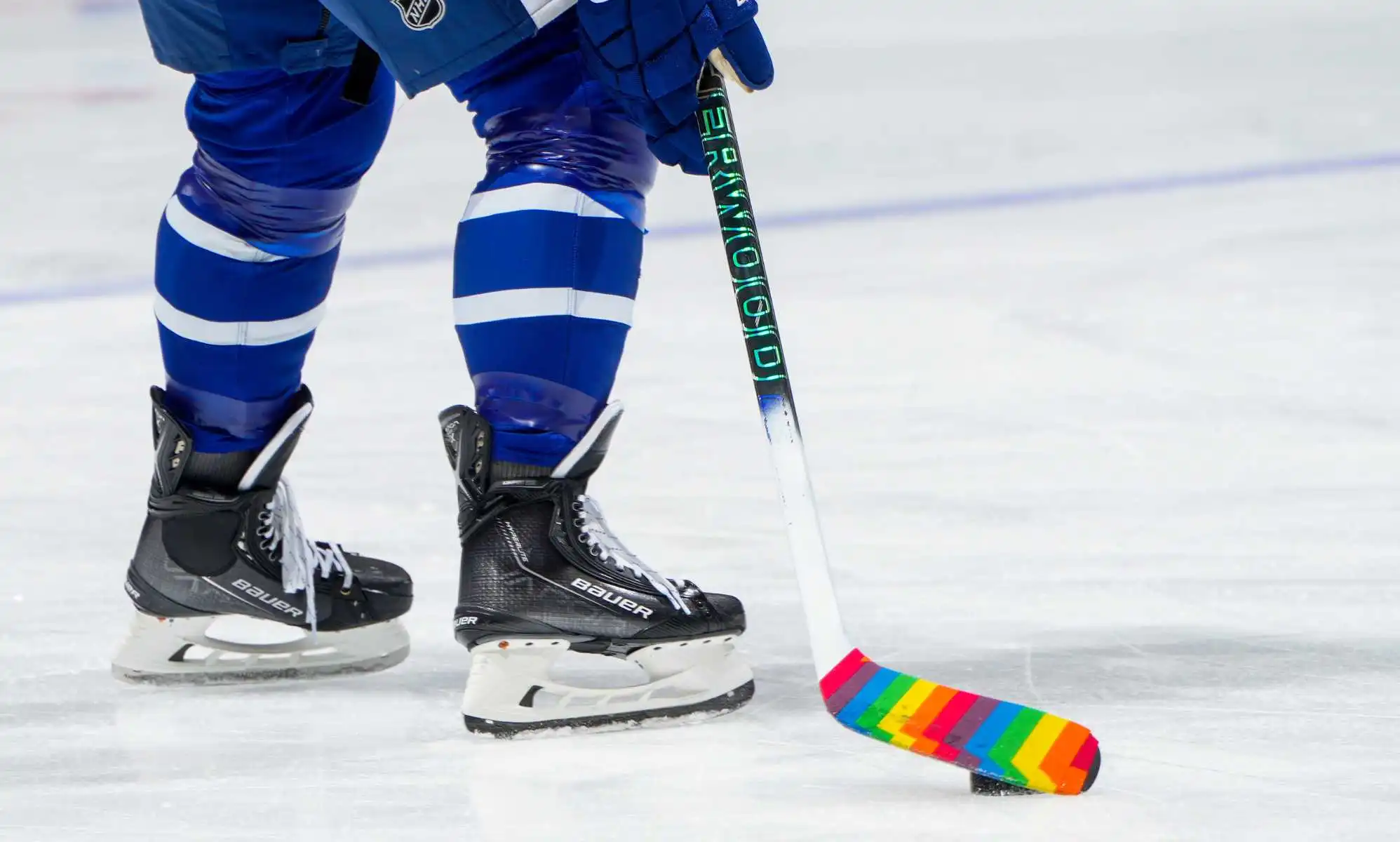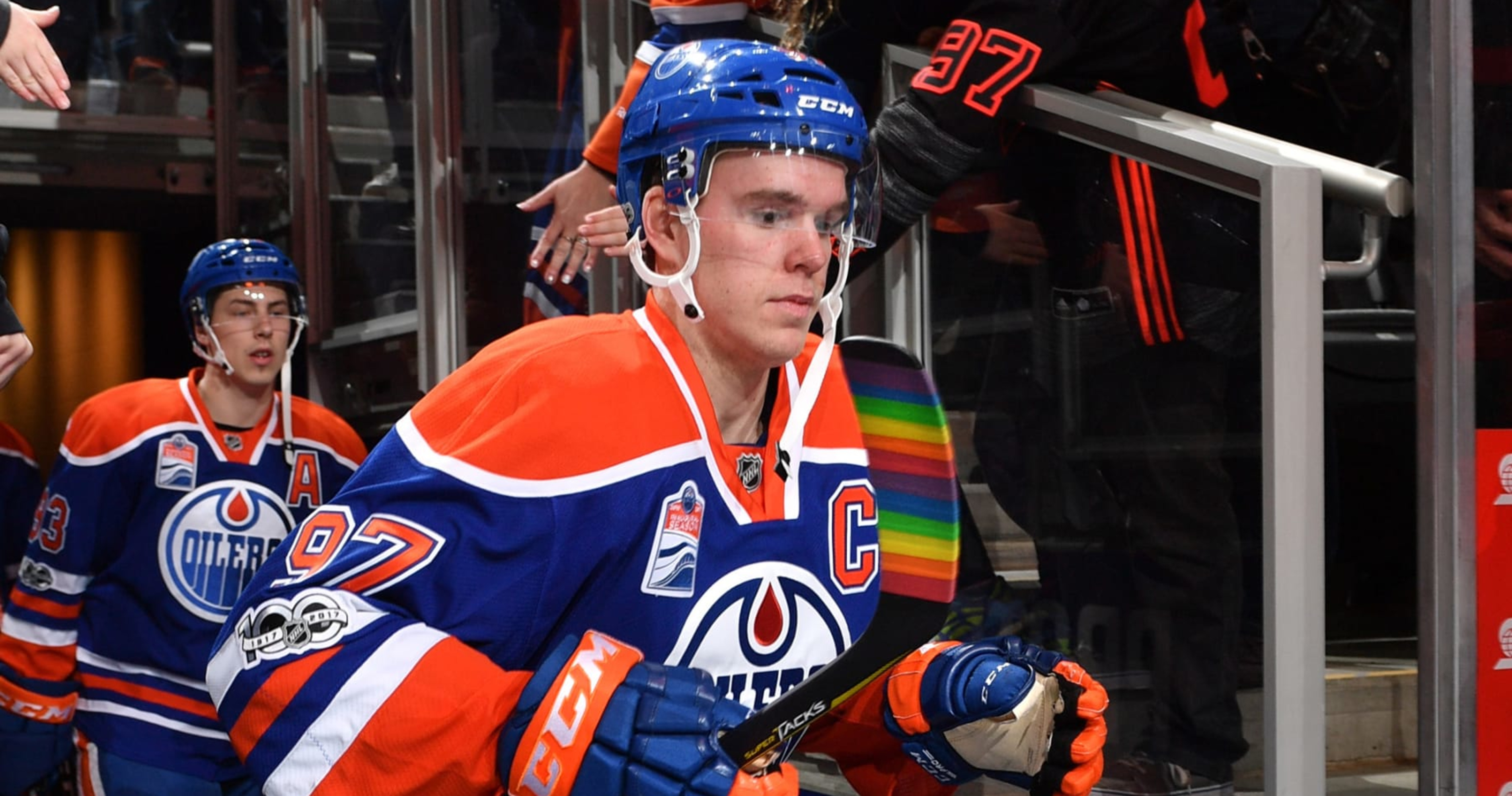By: Zachary Draves
On October 12, 1998, 21-year-old student Matthew Shepard, an openly gay man and student at the University of Wyoming, died after succumbing to his injuries sustained in a brutal beating at the hands of two men motivated by homophobia days prior.
His death became one of the most notorious hate crimes in history and sparked a movement aimed at preventing further acts of hate-filled violence. Twenty years later, while progress has been made including the passage of a US hate crimes prevention bill in his name in 2009, the LGBTQ+ community continues to be targets for hate, violence, and discrimination in the US and around the world.
It is those very things, hate, violence, and discrimination, that the NHL claimed that it stood against when it declared that “Hockey is For Everyone” in 2017. Yet, their recent actions don’t live up to that Crito.
As the NHL season gets underway, the league decided to send out a memo to the players on October 5 outlining rigorous guidelines on what they can and cannot do during special initiative theme nights. That included a ban on the use of rainbow-themed tape on the player sticks, which has been a seven-year tradition in the league during warmups before annual Pride Night games, alongside wearing rainbow-themed warm-up jerseys.
:max_bytes(150000):strip_icc():focal(756x405:758x407)/NHL-bans-cancer-pride-military-alterations_0473-2e3ddb69b4d14d62a836e1fffd6196ad.jpg)
(Courtesy: Jeff Vinnick/NHLI Via Getty)
Over the summer, the league announced that the players will no longer be wearing themed jerseys that coincide with those special themed nights and that includes games that center on cancer awareness, Black and Latino History Month, and military appreciation.
Players will be allowed to take part in these initiatives off the ice.
All this was due to a handful of NHL players who refused to engage in those typical Pride Night activities last season, due to political and/or religious beliefs.

(Courtesy: Getty Images)
During an appearance on ESPN Radio’s “UnSportsmanLike”, NHL Commissioner Gary Bettman attempted to clarify the league’s stance by saying “Instead of having that distraction and having our players have to decide whether or not they wanted to do something or not do something and be singled out, we said, ‘Let’s not touch that”.
Only recently did the NHL suddenly consider theme nights a “distraction”. Why is it only certain theme nights that get scrutinized but not others? Which by the way they shouldn’t be.
This entirely goes against everything the NHL has done for nearly a decade in trying to make hockey for everyone. That includes partnerships with LGBTQ+ advocacy groups such as the You Can Play Project, which seeks to root out homophobia and transphobia in sports.
The YCPP said in a statement on Twitter/X “It is now clear that the NHL is stepping back from its longstanding commitment to inclusion, and continuing to unravel all of its one-time industry-leading work on 2SLGBTQ+ belonging. We are now at a point where all the progress made, and relationships established with our community, is in jeopardy. Making decisions to eradicate our visibility in hockey — by eliminating symbols like jerseys and now Pride Tape, immediately stunts the impact of bringing in more diverse fans and players into the sport.”
The creators of Pride Tape also issued a statement saying “The league has used language in recent days that would prohibit the tape from any proximity to NHL hockey. We hope the league and teams will again show commitment to this important symbol of combating homophobia.”
Fortunately, there have been some high-profile players who made it crystal clear with their disappointment with this move. Among them include Edmonton Oilers Center Connor McDavid, Philadelphia Flyers forward Scott Laughton, Calgary Flames defenseman Rasmus Andersson, and Toronto Maple Leafs defenseman Morgan Rielly.

(Courtesy: Andy Devlin/NHLI via Getty Images)
Laughton went as far as to say last Wednesday that he will still use the tape “if I have to buy it myself, I will”.
Hopefully, more players will join a real clarion call for the league to live up to its own words. Even more so, the league should listen to the words of one of its former executives Brian Burke, who was instrumental behind the league’s inclusion initiatives.
“Fans look to teams and the league to show they are welcome, and this directive closes a door that’s been open for the last decade. Make no mistake, this is a surprising and serious setback,” he said in a statement last Wednesday.
Burke has a personal stake in this matter because much of his work is dedicated to the memory of his late openly gay son Brendan who was killed in a car accident in 2010.
The NHL owes it to the Burkes, the players, and the fans to actually practice what they preach. If not, well that could be a penalty for unsportsmanlike conduct by other means.